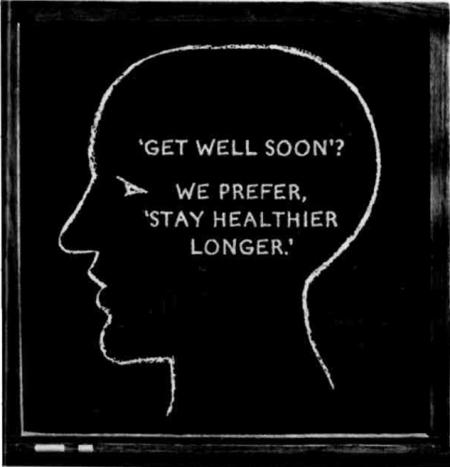I came across the following sentence in The Positive Thinkers, a book originally published in 1965. It strikes me as a good example of how the meaning of health has changed. (emphasis added)
Health is ordinarily regarded — when it is “regarded” at all, for ordinarily the point of being healthy is to be able to forget about it — as a means to other things; healthy men are those able to pursue their ends.
Health is hardly something we’re able to forget about today. We live in a culture where it’s commercially profitable to constantly remind us of widespread, proliferating risks. The conscious, highly intentional pursuit of health is a mark of social status for which we expect to be admired and envied. We “regard” it all the time. Read more












